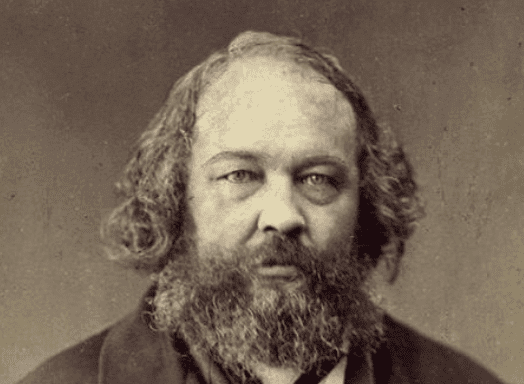Bakunin’s sentences have outraged his contemporaries and, curiously, continue to stun many. This Russian is considered the father of anarchism and one of the strongest representatives of atheism.
Mikhail Bakunin was a very friendly philosopher, adept at friendships and bohemian life; Hegel was a great admirer and critic of the Russian tsar’s depratic actions in the 19th century; nor did he like the ideas of Karl Marx, whom he considered authoritarian. .
- In Bakunin’s sentences there are reflections on many human realities.
- However.
- It is clear that it places particular emphasis on the issue of power.
- Basically questioning the power of the state and religion.
- Statements.
“My freedom, my human dignity, my human right, which is not to obey any other man and not to determine my actions differently from my own convictions. ” – Mikhail Bakunin-
“I do not recognize foolproof authority. Such faith would be fatal to my reason, to my freedom. Would I immediately become a stupid slave and an instrument of the will and interests of others?
It is one of Bakunin’s most iconic phrases, perfectly summarizing your attitude towards power. It is also a statement in which he declares his eternal irreverence before all kinds of absolute authority.
If there was an infallible authority, freedom would be just a word. This infallible authority would be responsible for saying what is due and should not be done. Why use individual reason if authority has the truth?
“The plurality of gods that the Greeks possessed is a guarantee against absolutism. Also, wasn’t there a morally monstrous logical contradiction between good and evil?
This is one of Bakunin’s phrases that may surprise some people, beyond religious beliefs, what this statement proposes can be divided into two parts: in the first, it equates monotheism and absolutism.
In the second part, he speaks of the contrast between good and evil as a logically and morally deplorable contradiction, thus stating that good and evil are relative concepts that never exist in their purest form, true ethics are reflective and not prescriptive.
“Freedom can only be acquired in society and in the nearest equality and solidarity of each one with all. “
In this statement, Bakunin refers to a fundamental fact: freedom is a good that exists only in society; an isolated individual cannot speak of freedom, because there is no reference to which to be free.
Freedom is social because power is also a social phenomenon, the two concepts complement each other and coexist. Someone is free to the extent that there is self-determination and that does not imply exclusion or isolation.
“I am truly free when all human beings around me, men and women, are equally free. “
In these phrases, Bakunin emphasizes the collective meaning of freedom, that is, when individual freedom is based on the oppression or slavery of others, it cannot be called freedom in the strict sense.
For a person to be completely free, there must be no restriction on the freedom of others. In this sense, a free society is a society in which everyone can make their own decisions without being subject to others.
“I considered that the holiest of my duties was to rebel against all oppression, whoever the perpetrator or the victim is. “
This is one of Bakunin’s phrases that expresses well his philosophy of anarchism. Contrary to what many think, the father of anarchy was not a propagandist of disorder, but of autonomy and self-determination.
The word anarchy is currently applied somewhat confusingly. Many think it means chaos and debauchery. In its essential sense, this position advocates the abolition of all forms of authoritarianism.
“Political freedom without economic equality is a pretext, a fraud, a lie, and workers don’t want lies?
It is an idea of the nineteenth century that remains in force almost two centuries later, even if we are far from seeing its conditions materialize. He speaks of the deep correlation between politics and economics, particularly in terms of freedom.
Economic equality is one of the ideals of socialism, stead of an absolute, it refers to the idea around the abolition of exploiters and exploiters, in truth, those who depend decisively on others for their livelihood do not have full political freedom.
“When people are hit with a stick, they won’t be happier if they say the stick belongs to the village. “
This could be considered one of Bakunin’s most progressive phrases, at that time there was no socialist or communist regime, they have emerged in the world beyond, though formally only on many occasions.
Bakunin takes a step forward and questions the ability to suppress these regimes that pretend to be egalitarian, which are often powers that act on behalf of the people, but are imposed in the same way as systems that create or maintain inequality.
Bakunin’s perspective could be more ethical than political or economic, his absolute rejection of any form of power is more ideal (utopian) than a reality that can be available to peoples.
Still, it’s still interesting to read and know the way you think.

